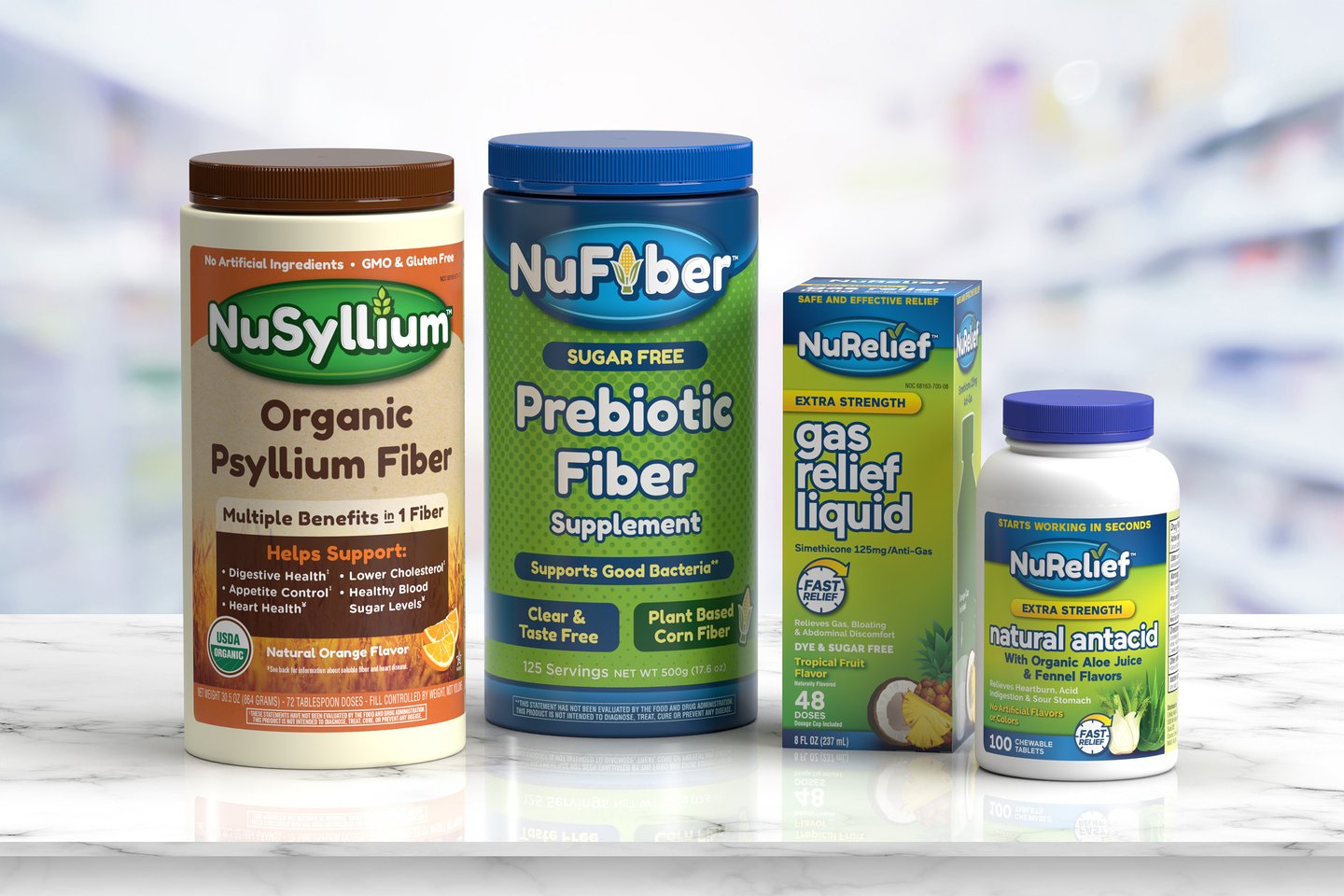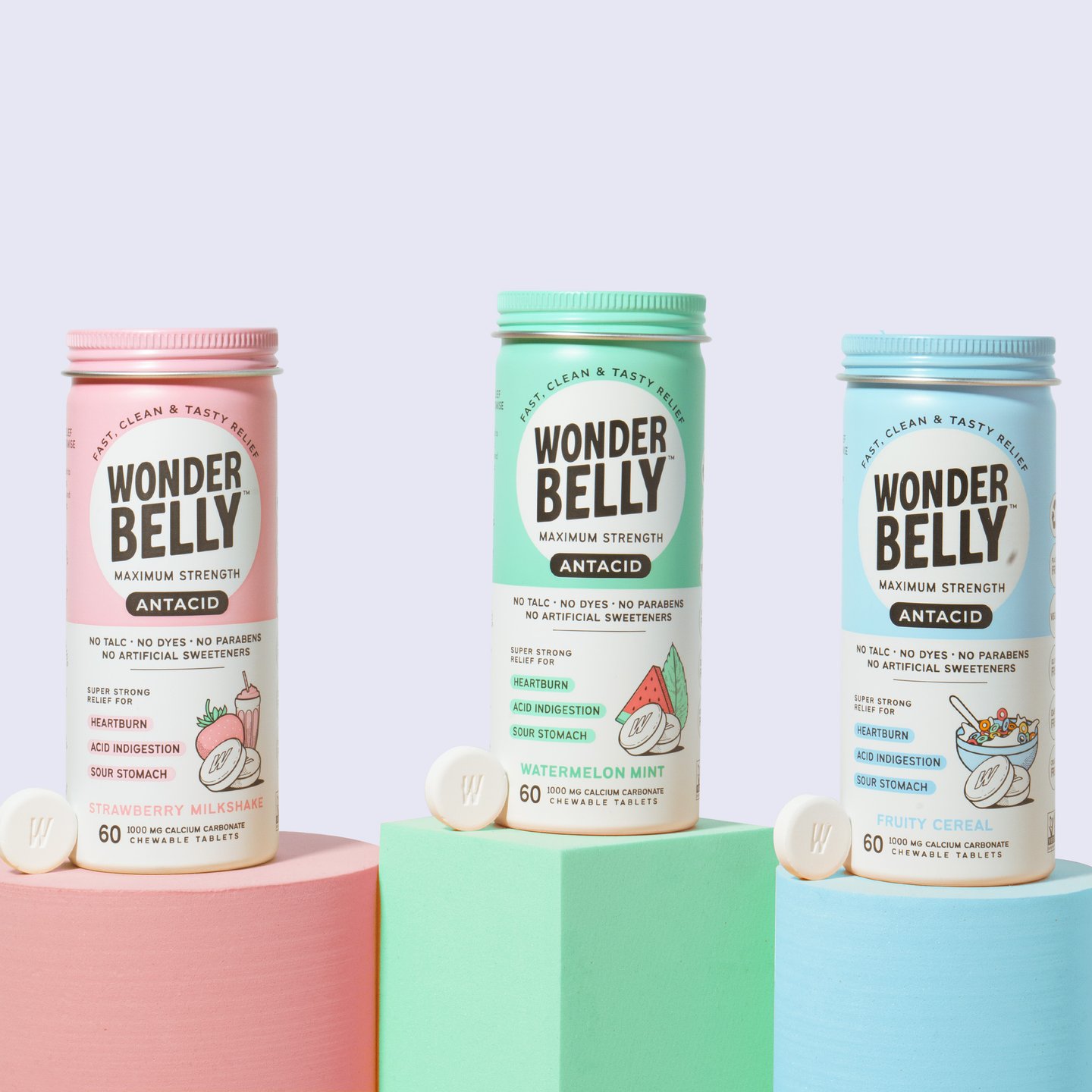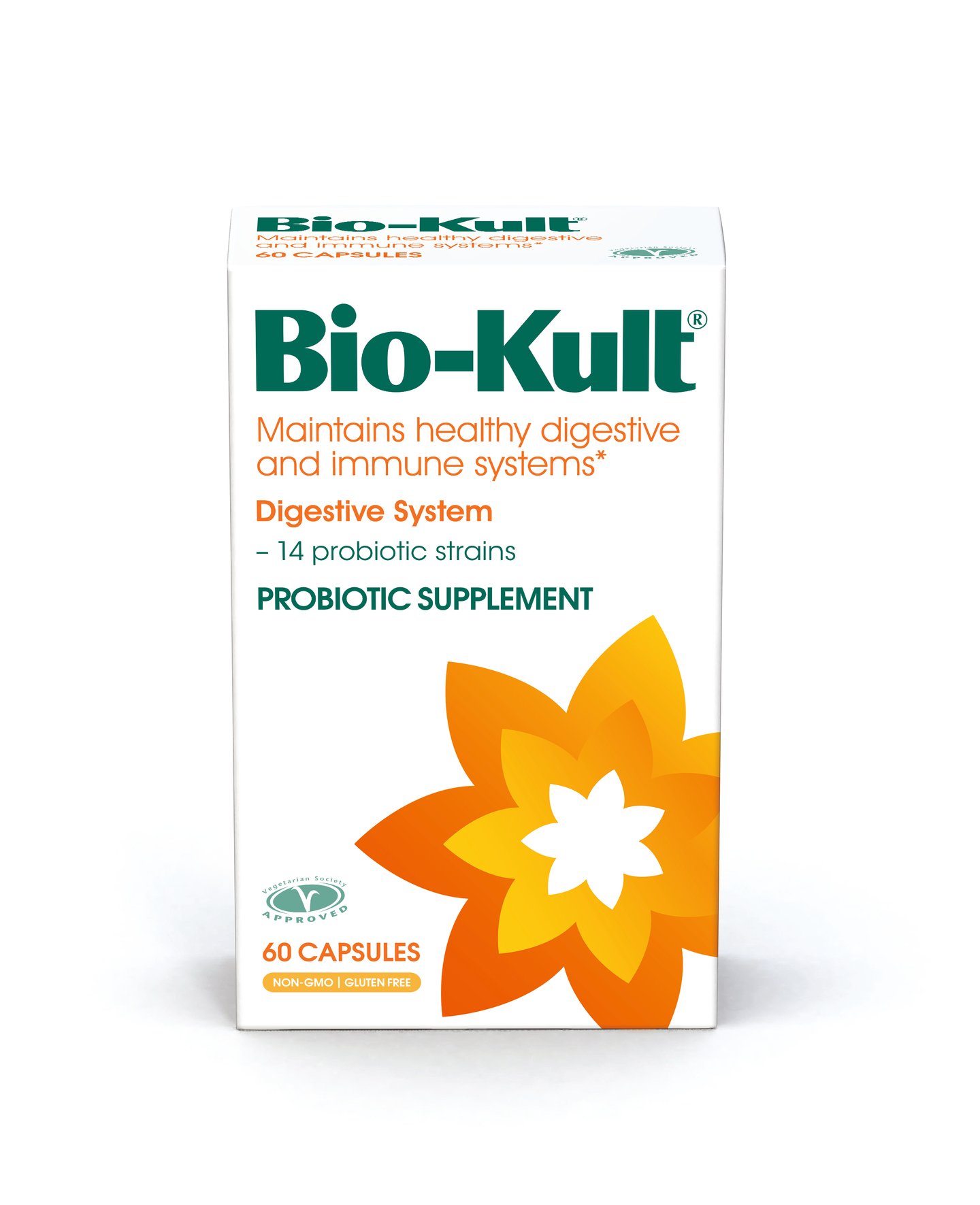Developments in digestive health
In the more than three years since the arrival of the COVID-19 pandemic, digestive issues have become more common. Studies show that digestive health can be influenced by various infections, mental stress, diet and lifestyle changes. Companies in the digestive health space are aware, expanding medicine and supplement options to address gastrointestinal problems for multiple demographics. At the same time, baby boomers are dealing with age-related digestive problems or hoping to stave them off.
Growing categories in the digestive health space include those that address chronic conditions, such as simethicone for gas and bloating and antacids for heartburn, said entrepreneur Noah Kraft. He and his brother, Lucas Kraft, co-founded Wonderbelly, a clean digestive health medicine company with an antacid product line.
“The pandemic and sedentary work from home has been a big factor,” Noah said. “There are articles that say that even COVID has had some sort of effect on our digestive health systems. But there’s definitely growth in people either needing more chronic help, or more specifically, now knowing that there are options.” As consumers gravitate more toward clean food and beauty and wellness products, there is an opportunity for the digestive health market to provide them with clean medicine, Noah said.
That type of product demand has shaken out in focus groups conducted by Lifelab Health, a maker of organic and natural products. “It’s pretty consistent,” said Louis Machin, managing director of consumers. “They want a better, healthier, better-for-you product without added dyes, chemicals, ingredients.”
[Read more: BelliWelli continues wholesale expansion with H-E-B Texas launch]
High Time for Fiber
Eating a high-fiber diet is known to promote bowel movements and regularity, but it may also lower cholesterol, inflammation and risk of complications and cancer of the colon, according to Mayo Clinic.
Following colonoscopies and endoscopies, fiber often becomes front and center in the minds of patients, Machin said. “People are coming out of those visits and saying, ‘I need a better solution long term,’ a high-fiber diet, et cetera, and that’s helping drive sales in the category,” he said. Psyllium husk is one type of fiber that helps maintain healthy blood sugar levels and improve heart health, and may help control appetite, according to research from Australia’s Curtin University published in Obesity Reviews. Psyllium fiber, ground from the seeds of the psyllium (or Plantago ovata) plant, is the active ingredient in Lifelab Health’s NuSyllium product line.
Across retail, supply chain disruptions have limited product inventory, Machin said, so customers are choosing whichever items are on the shelf rather than their preferred brands. That hasn’t been an issue with NuSyllium, he said: “Over 70% of consumers repurchase NuSyllium once they try it the first time. We’ve also had really solid service levels all year, so we have not been affected by supply chain issues.”
Meanwhile, Machin said sugar-free NuSyllium Ultra appeals to customers on a low-carb ketogenic diet. “We’re kind of unique in that we get the traditional digestive fiber demographic, the middle age and up, where it’s recommended to them by their doctor, but we also get the younger consumer who is active and following that kind of a regimen,” he said.
[Read more: Goli Nutrition launches 3-in-1 Pre+Post+Prebiotics]
Lifelab Health recently released a daily corn-based prebiotic fiber powder called NuFiber to support healthy gut bacteria. Free of sugar and gluten but also clear and taste-free, Machin said, “You could pour this over your cereal, and you’re going to have a tough time figuring out you did that.”
Research indicates that fiber helps rid the body of toxins, said Elizabeth Cooper, technical advisor at ADM Protexin, which produces the Bio-Kult probiotic product line. Studies also show fiber is associated with a lower risk of diverticular disease, which is when pouches form in the digestive tract, Cooper said. When the pouches become inflamed, the condition is known as diverticulitis.
Cooper pointed out that the American and British Gut Projects have linked the consumption of a high diversity of plant foods—30 different plants eaten each week—with greater microbiome diversity. Epidemiologist Tim Spector of King’s College London, who is involved in the project across the pond, told BBC Science Focus that doubling your fiber intake can help improve gut health.
The Promise of Probiotics
By supporting a healthy gut microbiome, fermented foods with beneficial bacteria like sauerkraut and kimchi are a boon to physical health, Cooper said. The probiotics market, including supplements, is growing and expected to continue expanding, Cooper said, citing data from Fortune Business Insights, Coherent Market Insights and Markets and Markets. Probiotic supplements are largely propelling the growth of the digestive health supplement category, according to Mordor Intelligence, which states in a report that within probiotics, “the major consumption is observed among millennials.”
Cooper said probiotic supplements like those in Bio-Kult products “exert a beneficial effect in the intestines as they move through the gut, creating an environment more favorable to the growth of our own resident beneficial bacteria, allowing them to replenish and thrive.”
Multiple bacterial strains in Bio-Kult products, specifically, “have been tested and shown in vitro to have transient colonizing capabilities, meaning they may remain in the gut for longer than others,” Cooper said. Additionally, she said microorganisms of the bacterial strain Bacillus subtilis PXN 21 could create a protective biofilm around themselves. That film can stick to the lining of the digestive tract.
Bio-Kult strains have also been shown to greatly improve blood sugar levels, insulin levels and insulin resistance, Cooper said, adding that this could be because of reduced gut inflammation in patients with metabolic syndrome. She said patients with non-alcoholic steatohepatitis also lost weight and improved their fasting blood sugar after taking Bio-Kult products. In addition, she said Bio-Kult bacteria have improved non-alcoholic fatty liver disease.
[Read more: Report: Digestive health products market to reach $89.9B by 2030]
As fiber encourages healthy bacterial growth in the gut, the reverse is also true, Cooper said, citing a study published in Gut Microbes by researchers from King’s College London, Nottingham City Hospital and the NIHR Nottingham Biomedical Research Centre. “Beneficial species also ferment fiber to produce short-chain fatty acids, which feed the cells lining the gut, helping them to repair
and renew,” she said.
Probiotic supplementation can also be customized, Cooper said, with some companies taking and analyzing stool samples and issuing questionnaires to formulate specific strains and dosages. “More and more people are realizing that ‘one size doesn’t fit all’ when it comes to our health, and as such, personalized probiotic and prebiotic products are gaining significant interest,” Cooper said.
Taking Action With Antacids
Antacids are used to treat heartburn, a condition that can result from diet choices as well as other factors, such as smoking and taking certain medications, according to Cleveland Clinic.
In 2022, brothers Lucas and Noah Kraft launched Wonderbelly and the flagship product Wonderbelly Antacid. Lucas suffers from gastroesophageal reflux disease, heartburn and upset stomach from bulimia. Lucas, who developed bulimia as a teenager, has quit binging and purging, but he continues to take antacids to treat ongoing digestive problems.
In a Wonderbelly blog post, Lucas wrote that he was inspired to create a new antacid after he became worried about antacid ingredients, such as N-Nitrosodimethylamine, a probable human carcinogen that the Food and Drug Administration recalled in 2020. Wonderbelly formulated its antacids with calcium carbonate, the same active ingredient as many other antacids on the market, but which are vegan and animal test-free, non-GMO, Clean Label Project Certified and free of talc, dyes, gluten, artificial flavors, artificial sweeteners and parabens.
“Those are things that really show that there’s intention and mindfulness behind the ingredients that we’re choosing, and it’s not just based on what is cheapest or what would look best,” Lucas said.
Lifelab Health also took a natural approach to antacids with its NuRelief line, which features calcium carbonate antacid tabs with no artificial colors or flavors. “Instead, we did organic aloe as one ingredient, which is also soothing and has a lot of benefits for gut health,” Machin said. In addition, NuRelief Natural Antacid tabs contain fennel, which he said freshens the breath and aids digestion.
[Read more: Align’s newest dual action probiotic caters to women’s health needs]
The NuRelief line also includes a Gas Relief Liquid containing simethicone as the active ingredient, minus dyes and sugars. “It actually tastes like piña colada,” Machin said. “It really helps people who have difficulty swallowing pills, which is a lot of the older demographic.”
As for Wonderbelly’s consumers, the core group is 25 to 39 years old and leans female, Noah said. Many of Wonderbelly’s customers discovered the brand during pregnancy. As Noah shared, studies have found that about 75% of pregnant women suffer from heartburn.
Wonderbelly’s selection of clean ingredients resonates with pregnant women, Lucas said. “It’s also going to affect another body as well,” he said. “So, their choices around ingredients have a little bit more importance than maybe it did before.”
Multiple members of the Wonderbelly team are either mothers or pregnant, Noah said, so the brothers aren’t making or passing on assumptions about the demographic. “We surround ourselves by chance and by notion to make sure that we are actually working with people who can walk us through the experience to make sure that we are very much catering to that constituency in a way that’s organic and not presumptive,” he said. The business came up with four antacid flavors, strawberry milkshake, lemon sorbet, watermelon mint and the Target-exclusive fruity cereal, to help the medicine go down, but also to be aspirational in the category, Lucas said.
“When it comes to taste, it was really important to us because I wanted it to be something that you look forward to beyond just relieving the symptom—[for] the actual experience to be enjoyable and flavorful,” Lucas said. To educate people about other ways to achieve digestive relief, Wonderbelly posted a blog on its website about mindful eating.
Lucas said he has found the practice to be more sustainable than strict, exclusionary dieting. Addressing the numerous demographics with various digestive issues, experts agree that options exist to help, and catering to the demand for specific product formulations can provide consumers more peace of body and mind.
Product Picks:
Bio-Kult Original
Bio-Kult is a multi-strain supplement with 14 probiotic strains. Its formulation targets the digestive tract. Each capsule contains a minimum of 2 billion microorganisms per capsule, equivalent to 10 billion microorganisms per gram.
NuSyllium Organic Natural Fiber Products
The first fiber product made with USDA Organic psyllium fiber, NuSyllium utilizes Perfect Grind technology for smooth mixing. The product line includes NuSyllium Ultra Sugar Free Fiber, NuSyllium Sugar Free Vegan Fiber Capsules, NuSyllium Orange Fiber and NuSyllium Unflavored Fiber.
Wonderbelly Antacid
Wonderbelly Antacid fights heartburn, acid indigestion, sour belly and related upset stomach. Each bottle contains 60 chewable tablets, each with 1,000 milligrams of calcium carbonate. Wonderbelly is free from talc, dyes, parabens, and artificial sweeteners and is vegan, dairy-free, gluten-free, and Non-GMO Project Verified. It’s available in four flavors.






